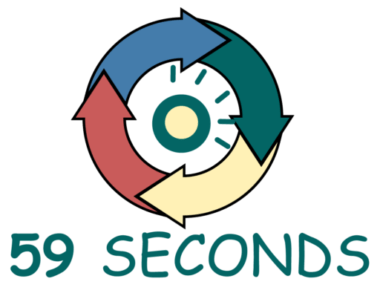What is the Agile Scrum Framework and how do the development team go about Implementing Agile Scrum? Lets take a look at What is the Agile Scrum Framework and consider the Agile Scrum Theory, values and principles.
The Agile Scrum Frameworks
A 59 Seconds Agile Video Animation
The Agile Scrum Framework and Implementing Scrum Part 2
A 59 Seconds Agile Article
Inspection and adaptation are the last two theories. At the end of a sprint when the Scrum team reviews what went well or badly, this process is called the inspection. If developers and other roles offer genuine feedback, the team can determine where problems lie. Once the team identifies problem areas, they must plan to resolve these issues. This process is called adaptation. After developing a plan to improve, the Scrum team applies the plan in future sprints. By repeating this cycle of inspection and adaptation over time, the Scrum team becomes more efficient. For developers, this requires reacting positively to change. Development methods may change sprint to sprint as the team decides to try new methods. The developer role must be able to accommodate these changes and continue with their responsibilities.
Agile Scrum and the Scrum Values
Like theories, Scrum maintains certain values that result in a better software development environment. The most important value is flexibility. Scrum teams do not use methods just because other teams use them. They choose methods that work best for each individual team. If something works, and products are completed, those methods are considered successful.
For developers, this flexibility means that they can work according to their strong suits. Developers naturally gravitate toward what they do best. The flexibility of Scrum allows developers to distribute tasks according to who can most effectively complete them.
Creativity means that the Scrum team is not bound to a traditional solution. If developers can think of a better solution or method, they are able to try it. With adaptation, they can then proceed to hone this method into what works best for their specific team.

Agile Scrum and the Scrum Team
The Scrum team sets the scrum framework apart from other Agile frameworks or traditional development. One way Scrum teams are unique is that they are cross-functional. This means that several different roles work together on the same team. Instead of having development broken up into individual departments, a single team has representatives of every part of the process. Analysts, developers, testers, and other roles all work together in the same place.
Cross-functional teams have numerous benefits. One of the most obvious is how quickly different roles can interact. Instead of waiting on delays in communication between departments, each role can work directly with other roles on the same team. This improves the efficiency and timeliness of communication and allows each role to get back to their own work. If developers have questions, they can go directly to the source and get answers quickly.
Agile Scrum and the Stakeholders
Scrum teams are also able to work more closely with stakeholders. In traditional development, customer feedback filters through several layers of a company before developers have any indication of success. Scrum teams have a product owner role, which serves as a representative of stakeholders. The product owner interfaces directly with stakeholders frequently and relays information to the Scrum team regularly. As such, the Scrum team knows what stakeholders think of existing features, and what they want in future pieces.
The Scrum Master acts as the glue that holds a team together. This role ensures that the entire process flows as it should. If any role has a problem outside of their power, they bring it up with the Scrum Master. Developers who encounter problems outside of software development can express these concerns with the Scrum Master, who will follow through with solving the problem.
Each of these values, theories, and elements come together to create a process that works for the team. Scrum is a framework that works remarkably well for certain applications. If a team and organization need a tool for a large and complex software product, Scrum is often the most ideal solution.
Prev <— Continue Reading —> Next
User Stories Applied
A 59 Seconds Agile Book Review
User Stories Applied by Mike Cohn is one of our favourite books on Agile User Stories. The book starts with an overview into user stories, and details what a user story is and the different aspects of them. He then discusses how to go about writing a user story, and provides details of the INVEST criteria that can be used to determine if the story is meeting all of its objectives. Next Mike gives an in depth discussion of who user stories are written for and where to begin when gathering the details for them. The book then discusses acceptance testing user stories, including how to go about specifying these criteria and the responsibilities of the development team and customers during this process.
Prev <— Continue Reading —> Next
The Agile Frameworks
A 59 Seconds Agile Infographic

Prev <— Continue Reading —> Next
Our Favourite Agile Books
We found these books great for finding out more information on Agile Scrum:

